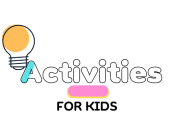In today’s fast-paced world, providing age-specific activities for kids holds immense importance in nurturing their overall development. It’s crucial to recognize the value of offering age-appropriate and developmentally suitable options that cater to the unique needs of children at different stages of growth.
For instance, research shows that children ages 3 through 5 years need to be active throughout the day, while children and adolescents ages 6 through 17 need to engage in physical activity for at least 60 minutes every day. However, statistics from 2017 reveal that only 26.1% of high school students met this benchmark, highlighting the significance of thoughtfully categorized activities.
Emphasizing the value of age-appropriate and developmentally suitable options is essential for ensuring that children receive activities tailored to their specific needs. Here are 5 key benefits of age-specific activities to optimize the learning and growth experiences for children.
Cognitive Development


Age-specific activities play a pivotal role in enhancing cognitive skills by providing tailored experiences that stimulate children’s developing minds. These activities are designed to challenge and engage children at their specific cognitive level, promoting critical thinking, problem-solving, and creativity.
Examples of Activities Tailored to Different Age Groups
- Ages 2-4: Sorting and matching games to enhance categorization and visual discrimination
- Ages 5-7: Simple puzzles and memory games to improve cognitive processing and memory retention
- Ages 8-10: Science experiments and logic-based activities to encourage analytical thinking and experimentation
- Ages 11-13: Complex problem-solving tasks and creative writing exercises to foster advanced cognitive skills
- Ages 14-17: Debate clubs and strategic board games to promote higher-level reasoning and decision-making
Social and Emotional Growth
Age-appropriate activities exert a profound impact on social and emotional development. By tailoring activities to specific age groups, children are provided with the opportunity to engage in experiences that foster their social and emotional intelligence. These activities encourage positive interactions, empathy, and effective communication, laying the groundwork for healthy relationships and emotional well-being.
Physical Well-being


Age-specific activities play a crucial role in promoting the physical well-being of children. These tailored activities are designed to enhance motor skills, coordination, and physical fitness while considering the developmental stage of each child. By engaging in age-appropriate physical activities, children can develop healthy habits. They can also improve their overall physical health and lay the foundation for an active lifestyle.
Confidence and Self-Esteem
Age-specific activities contribute significantly to building confidence and self-esteem in children. By tailoring activities to the appropriate developmental stage, children are provided with challenges and achievements that are within their capabilities, leading to a sense of accomplishment and self-assurance. These activities also create opportunities for children to explore their strengths, build resilience, and develop a positive self-image, contributing to their overall confidence and self-esteem.
Overall Development
Age-specific activities offer holistic advantages for individuals at different stages of life. These activities contribute to physical, social, emotional, and cognitive well-being, addressing the multifaceted needs of individuals across various age groups.
By engaging in activities thoughtfully categorized by age groups, individuals can experience tailored challenges and opportunities for growth, leading to a more comprehensive and balanced development.
Conclusion
Age-specific activities for kids yield numerous benefits across physical, social, emotional, and cognitive domains. These activities promote overall health, encourage positive interactions, foster emotional intelligence, enhance cognitive skills, and contribute to building confidence and self-esteem.
Parents and educators are encouraged to prioritize age-appropriate activities to support children’s growth and development. And also creating an environment that nurtures the diverse needs of children at different developmental stages.

